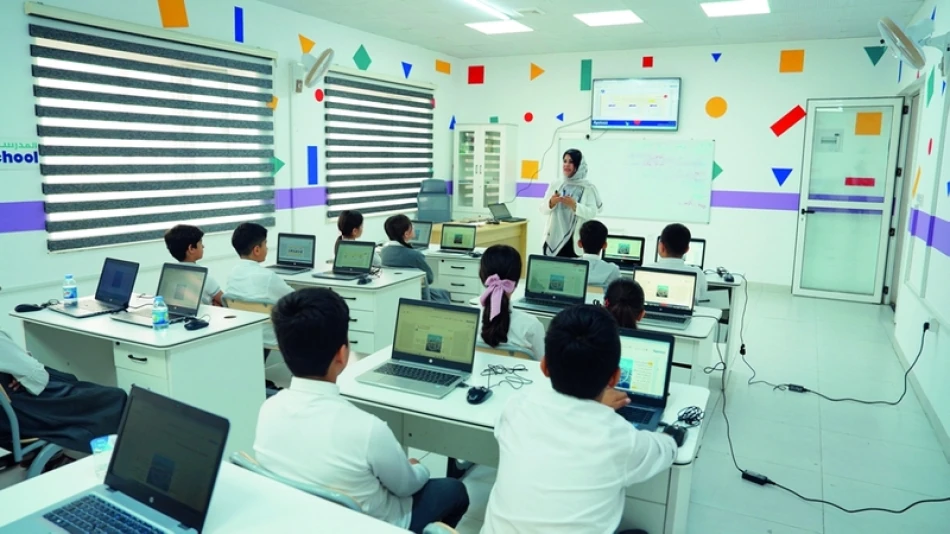
Digital School and Education in Iraqi Kurdistan Launch Initiative to Upskill 10,000 Digital Teachers
The Digital School, a UAE-backed education initiative, is training 10,000 teachers in Iraq's Kurdistan Region to master digital teaching methods. This massive teacher development program, run with Arizona State University, builds on an earlier success that certified 2,400 digital teachers and represents a major push to modernize education across the region.
The partnership between the Digital School and Kurdistan's Ministry of Education shows how Gulf states are expanding their educational influence beyond borders. The program addresses a real need - many teachers worldwide lack the skills to effectively use technology in classrooms, especially in regions affected by conflict or limited resources.
Omar Sultan Al Olama, UAE Minister of State for AI and Digital Economy, said building digital teaching skills is central to the Digital School's mission. He emphasized that the partnership creates a model for sustainable, innovative education and helps build teachers who can blend technology with critical thinking.
Kurdistan's Education Minister Alan Hama Saleh praised the Digital School's flexibility. The program works across geographical boundaries, time zones, and language barriers. Teachers can access training materials in Kurdish, Arabic, and English, making it accessible to more educators. The system updates content quickly and creates personalized learning experiences.
The training happens through the Global Digital Teacher Academy, which focuses on developing digital skills and innovative teaching methods. Teachers earn international certification from Arizona State University. The program offers flexible scheduling for working teachers and includes incentives for top performers.
This initiative fits into broader trends in education technology and international development. Remote learning became essential during COVID-19, but many teachers still need better digital skills. The UAE is positioning itself as a leader in educational innovation, using its resources to support education in regions that need it most.
The Digital School launched in November 2020 under Sheikh Mohammed bin Rashid Al Maktoum's global initiatives. It targets underserved communities, refugees, and displaced people worldwide. The school has already reached over 750,000 students and trained more than 23,000 digital teachers globally.
The academy offers training in seven languages - Arabic, English, French, Kurdish, Portuguese, Spanish, and Indonesian. This multilingual approach helps the UAE extend its soft power influence while addressing the UN's fourth Sustainable Development Goal of quality education for all.
For investors and policymakers, this represents how Middle Eastern countries are using education as diplomatic tools. The UAE is building long-term relationships through educational partnerships, creating goodwill while establishing itself as a regional knowledge hub. This approach could influence how other Gulf states engage internationally.
Most Viewed News

 Sara Khaled
Sara Khaled






